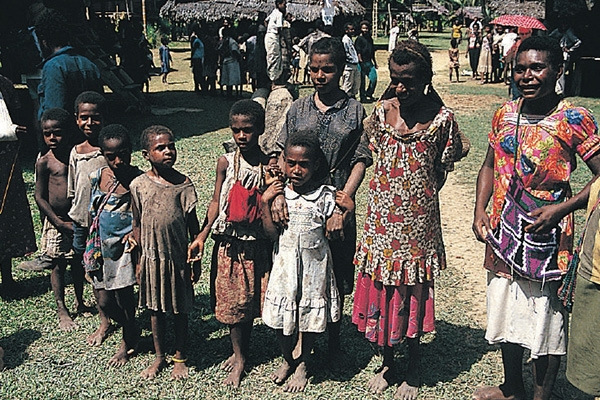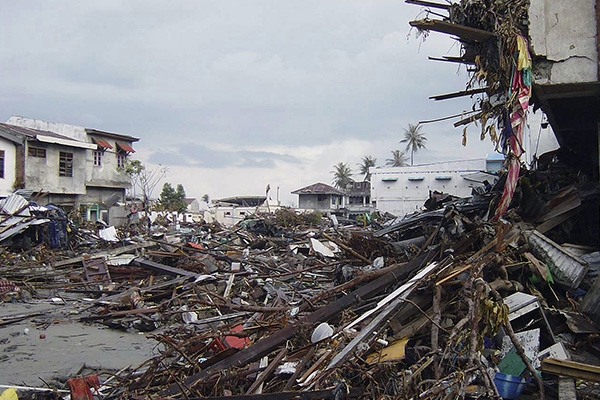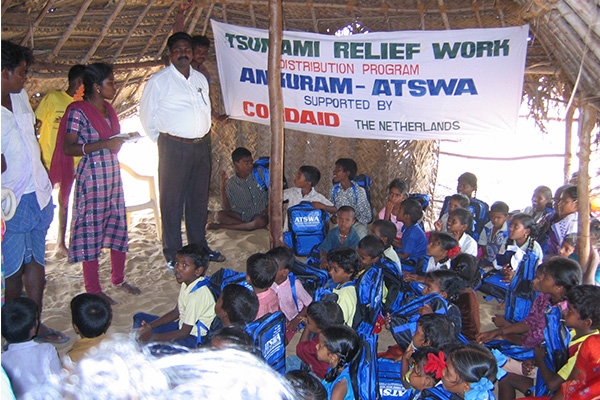
Doctor of tropical medicine on Terschelling
Operating on tsunami victims, coordinating emergency aid during a civil war and the croaking of frogs in the surgery: Menno Swier worked as a doctor of tropical medicine in Papua New Guinea and Indonesia. He is now a GP on Terschelling and here too there is never a dull moment.
Why did you become a doctor of tropical medicine?
‘As a child I wanted to become a doctor so I could make people better. I also wanted to travel to tropical countries, so doctor of tropical medicine seemed like the perfect combination. After I graduated, I did my residency in a mission hospital in Tanzania. I assisted in operations to start off with, but was soon allowed to do them myself. In a small hospital like that you have to be a real all-rounder: lancing boils, carrying out caesareans… you name it. And all in a tropical setting: hot and humid, unsurfaced roads, bats in the covered walkways and frogs croaking in the surgery. I thought it was fantastic. The people are special too: very warm and superstitious. Many think that diseases are due to their ancestors or the evil eye. Back in the Netherlands I trained as a doctor of tropical medicine. In my second year, in 1997, I was given the opportunity of working for Memisa in Papua New Guinea.’

What was that like?
‘I was the medical director of a small mission hospital with 130 beds. The hospital is in a hamlet on the north coast, in the middle of the tropical rainforest. I had a fabulous time. I got on well with the local staff, who, unlike their Dutch counterparts, were untroubled by work pressure and the need to follow procedures as efficiently as possible
‘Everything changed in 1998. A seaquake caused a tsunami that had disastrous consequences. A 15-metre high wave destroyed all the villages along the coast. Our hospital was spared because it is further inland. I was on a nearby island with my wife at the time. We saw the reef dry up, but were lucky that the tsunami did not reach us. The chaos in the disaster zone was enormous. Hardly anything was left standing and everywhere were dead bodies and people with severe fractures, infected wounds and lung infections having swallowed seawater. We worked day and night in the hospital for a long time afterwards.’
How do you keep going in such a situation?
‘It was very difficult because we also had to make a lot of hard decisions. The helicopter couldn’t take all the injured, so you then have to decide who’s still in with a chance. But I also got a huge rush of energy, because so much had to be done and because so much was possible all of a sudden. We received a lot of help from the Australian army, which meant we could restructure the aid and some of the care. In 2000 my Dutch wife and I decided to return home. My wife wanted to follow training in the Netherlands and I wanted to specialise further.’

What did you do then?
‘I decided to study Public Health in Leiden, because I’m really interested in the conditions that make good health care possible. Then I trained as a GP. I interrupted my studies for a while in 2004 after the Boxing Day tsunami in the Indian Ocean. It was an unprecedented disaster with an estimated 230,000 dead. The current affairs programme NOVA asked me to comment, as a doctor of tropical medicine with experience in a disaster zone. Jeroen Pauw said: ‘You’re probably itching to go and help.’ Which was true.
‘Shortly afterwards Cordaid asked if I wanted to work as aid coordinator in the hardest-hit area: the province of Aceh on the island of Sumatra. The damage was indescribable. Here too hardly anything had been left standing. But lots of international aid teams arrived and the army was deployed en masse. I coordinated the aid provided by some of the teams, travelling from village to village to make an inventory of what was needed. Often a bridge or road had disappeared. A civil war was also raging in that area and we often had to negotiate with the army. Many of the injured were treated on army hospital ships. It was an intense period that I often think back to. I returned to the Netherlands about five months later.’

Did you stay in the Netherlands?
‘Yes, my wife and I had children by then and wanted to live near our families. I worked for a short period as expedition doctor for the TV programme Bobos in the Bush and was then hired as a GP on Terschelling. The good thing about an island like this is that it is a kind of mini society, because the mainland is a two-hour boat trip away. We work with about six permanent GPs. Instead of referring people to hospital, which we don’t have here on the island, we do a lot ourselves. Like x-rays and minor operations. Each season brings a certain type of patient. For instance, you have young people drinking themselves to oblivion in the summer, older tourists with heart problems in the autumn and islanders who finally have time to go to the doctor with their complaints in the winter. Never a dull moment.’
What experiences do you treasure from your student days in Leiden?
‘It was inspiring to be taught by the leading lights in their fields. Like Professor Hoedemaker and pathology and Professor Tollenaar and surgery. I liked being part of this academic world and this made me want to get the best out of myself. I also made a lot of friends at Quintus. I really liked it here, but I was a bloody-minded student. I wanted a lot and I wanted to do things my own way. So, unlike my co-students, I didn’t try to get a popular specialisation as soon as possible, but chose to gain life experience in the tropics.
‘I hope that young people today are also given or take this space. Students have to complete their studies as quickly as possible nowadays, but it’s so important that you develop as a person too. Young doctors also need life experience, particularly if they have to tell patients that their treatment options have been exhausted.’
(LvP)
Who: Menno Swier (50)
Studied: Medicine (1985-1992)
Student Assn.: Quintus
Favorite spot in Leiden: The whole city centre
